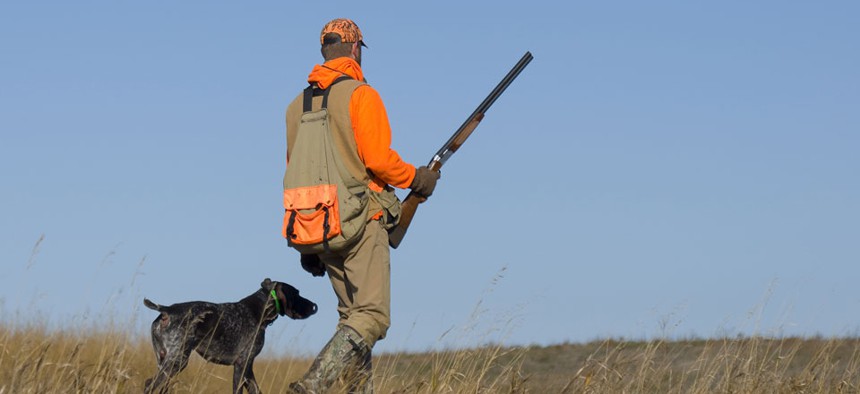Hunting Licenses to Shoot at Drones: What Could Possibly Go Wrong?

Steve Oehlenschlager/Shutterstock.com
Voters in Deer Trail, Colo., will decide on the initiative in April.
Last spring, a Seattle woman reported that some guy was flying a drone over her yard.
It was, she wrote , a "warm spring day," and she at first believed that the buzzing sound she was hearing was someone doing yardwork. But soon she looked out her third-story window, and saw "a drone hovering a few feet away."
The drone's operator was outside on the sidewalk. The woman's husband went outside to ask him to quit and he refused, arguing that "it is legal for him to fly an aerial drone over our yard and adjacent to our windows."
Whether he was right about that is unclear. What kind of drone was it? Who was the operator? Was he taking pictures of the inside of her home or of the public street?
These are questions for law enforcement and courts to sort out, I said in a piece about the incident . In the meantime, though, many people wrote to me to say: To heck with that. I wouldn't wait for any cops. I'd shoot that thing right out of the sky myself.
Well, Phil Steel of Deer Trail, Colo., thinks that is a great idea.
Steel has proposed that his town adopt an ordinance that would allow residents to take up to three shots at drones flying over the town at fewer than 1,000 feet (more if your life is in danger). The measure, which has divided the town of 550, will be voted on at the ballot box in April. Until then, Steel is selling his own licenses, for $25 each, to anyone who wants, though they "have no legal value," Matt Pearce reports in the Los Angeles Times .

Drone-hunting license. Comes printed on vellum . (Phil Steel)
I checked in with John Villasenor , an expert on the laws governing domestic drone use, to see what he thinks of the idea. In a word: "terrible."
"The most obvious concern is that the person doing the shooting could end up accidentally hurting or killing someone on the ground," he wrote to me. And that's not the only type of tragic mistake people could make: "What happens if there's a very small manned aircraft at 950 feet and someone mistakes it for a drone?"
Villasenor says that drones are going to bring us into uncharted legal territory concerning the lower airspace. "A property owner clearly ought to have control over the air at shoelace level. On the other hand, a property owner doesn't have a reasonable claim of control over the airspace 1000 feet above the ground. So where does the control start?" Just because a drone passes over someone's private property (without taking any pictures), "that doesn't give the property owner a right to impede its flight."
That said, we're not starting from a blank slate. We have laws to protect privacy, and just because drones are a new technology doesn't mean that the laws are going to be ineffective. "If a drone is hovering right outside someone's second floor window without permission and taking pictures into the interior, that would almost certainly be a Fourth Amendment violation (in the case of a government drone) or provide grounds for an invasion of privacy claim (in the case of a private drone)," Villasenor writes.
It's unlikely that will be of much comfort to Steel and his supporters. "I have declared the sovereignty and the supremacy of the airspace of my town," he told the LA Times . "This is an act of sedition, and I proudly state that."
( Image via Steve Oehlenschlager / Shutterstock.com )
NEXT STORY: Telework Calculator Launches on Federal Snow Day





